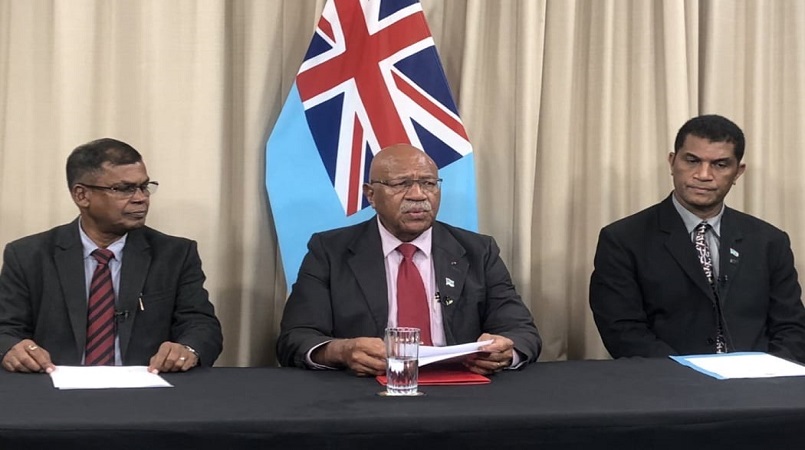
Around 220,000 primary and secondary school students are expected to benefit from the Fiji coalition government's F$50 million back-to-school assistance scheme when the academic year begins in early February.
Prime Minister Sitiveni Rabuka revealed on Tuesday that the state will provide F$200 (NZD$144) per child to families who earn less than F$50,000 per year.
The education initiative - a first by the three-party coalition - was aimed at ensuring children from "lower-income homes have the best possible start to the 2023 school year", Rabuka said.
"This is due to the hardship many families are facing in the last couple of years due to Covid-19 and the contraction of our economy, whereby a lot of people have lost their jobs," he said.
The People's Alliance-National Federation Party-Social Democratic Liberal Party government has "redeployed funds through the current budget" to allocate monies to assist school children, he said.
"It is our hope that this assistance will in many ways ease the way back to financial stability for families who are still recovering from the dire economic events of 2020 and 2021," the prime minister said.
"Support for education is at the core of the coalition government's commitment to the people of Fiji."
Primary and secondary school tuition was free in Fiji - a policy that was introduced by the former prime minister Frank Bainimarama's FijiFirst government.
Rabuka's coalition has said it will continue with the tuition-free education policy of its predecessor.
Last week, the education ministry announced the new academic year was set to begin from 6 February.
It also confirmed that schools will revert to three school terms instead of the four that were introduced in the aftermath of the pandemic.
Education Minister Aseri Radrodro said the decision to go back to three terms was made following consultation with all relevant stakeholders.
But FijiFirst MP and former education minister Premila Kumar labelled this move by the coalition as "regressive."
"The change in the school term structure by the education minister is regressive," Kumar said, adding Radrodro "failed to understand the rationale behind this change".
"The rationale to introduce four school terms was to bring about overall efficiency in the international best practice," she said.
However, Radrodro maintained it was the position of the coalition government to have three school terms and urged parents and guardians to access the help made available for their children.
Deputy Prime Minister and Finance Minister Biman Prasad said Kumar should realise that many of the reforms undertaken by FijiFirst "was haphazard [and] not thought very carefully".
"We have had no evaluation and review in the last eight years or beyond to be able to see the impact of those reforms," Prasad said.
He said the opposition should "relax" and allow the coalition to make the changes they believe were necessary.
The finance minister also confirmed that cabinet was "taking stock of where things are in our respective ministries".
"In this very early phase, we have recognised that families are going through tough times due to the economic challenges that prevailed during the end in the aftermath of Covid-19," Prasad said.
He said the hardships faced by Fijians have "intensified by the global inflationary challenges".
"We are here to help ease the financial burden on families," he said.
"The coalition government will provide a back-to-school support of $200 per child to help purchase things like school bags, shoes, stationery, books, lunch boxes, and other supplies for the children.
"It's not just tuition fees. It's also these things that parents and the children need."
Families who were eligible for back-to-school assistance were required to fill out a manual application form which will be available at schools all over the country from today.
The finance ministry will start making payments from 25 January, Prasad said.
